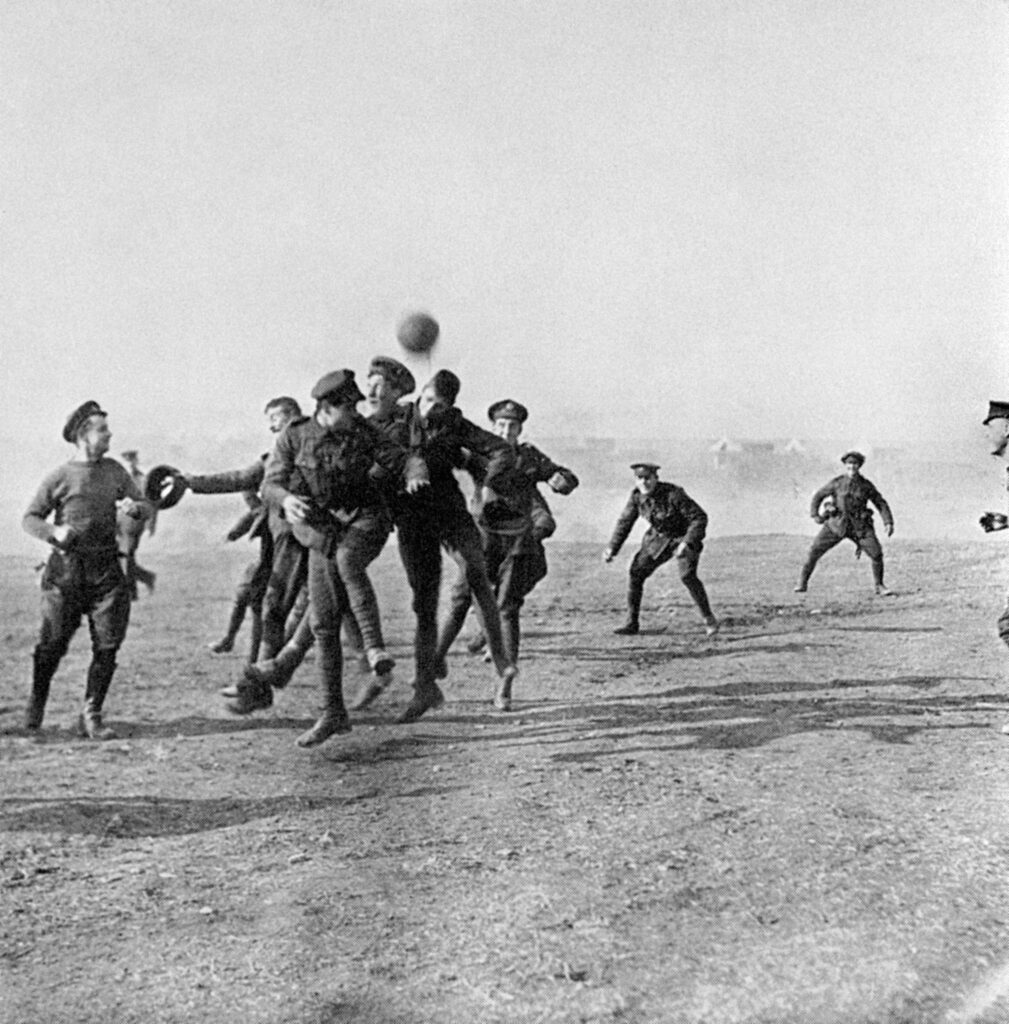What The Christmas Truce Of 1914 Teaches Us About Loving Our Enemies
When the angels appeared to the shepherds outside Bethlehem on that night more than 2,000 years ago, they spoke of the great tidings of the incarnation and sang what has become the universal Christmas prayer of the centuries: “Peace on Earth and goodwill toward men.”
Perhaps those same Christmas angels were singing over the Western Front in 1914, when the guns fell silent.
The Christmas truce of 1914 is one of those stories many of us have heard, but it’s well worth revisiting. It’s so unbelievable it’s almost too good to be true; it was a series of widespread, voluntary, and unofficial ceasefires between the Germans and English that occurred in the days surrounding Christmas.
World War I was a mere five months old, and soldiers on both sides had been promised that the war would be so short, they would be “home by Christmas.”
But by December, it became clear the war would be much longer and bigger. It had evolved into a stationary affair, where men shot at each other incessantly from muddy trenches and the sight of another man a mere 30 yards away was enough to open fire.
Back at home, English war posters portrayed the German enemy as an angry ape resolved to destroy innocent Englishmen, while German propaganda warned that British victory would mean an impoverished and ruined Rhineland. It was the language of total warfare; it was win or die in the minds of Europeans.
By the time Christmas came, it looked as though millions of men would spend their day knee-deep in mud, shooting at their fellow men, and fostering feelings of hate toward their faceless and nameless enemy.
Brits and Germans Sing Carols Together
In a letter published in The Bedfordshire Times and The Independent on Jan. 1, 1915, a lance corporal wrote of his experience on watch at 1 a.m. on Christmas morning:
I was on look-out duty and one of the Germans wished me Good morning and a Merry Christmas. I was never more surprised in my life when daylight came to see them all sitting on top of the trenches waving their hands and singing to us.
Another soldier’s letter, published in The Carlisle Journal on Jan. 8, 1915, records the British and German celebration of Christmas. The soldiers sang carols together, traded cigarettes and souvenirs, and drank to the king’s health.
“The regiment actually had a football match with the Germans who beat them 3-2,” he wrote. “After all this has been almost a happy though strange Christmas.”

In many sections of the front, the German soldiers set up candles and scrawny Christmas trees in their parapets. They may have been surrounded by freezing mud, but they would celebrate the birth of Christ.
A Belgian soldier wrote that he was not sorry to have spent the day in the trenches. The experience of the Christmas truce had made it worth it:
It was the last time a widespread truce of this magnitude would happen across the front. Another year of heavy fighting embittered both sides, and as war continued, they became unable to see the humanity of their enemies.
No one would have blamed the English night guard if he had shot the Germans who had come to his parapet at midnight on Christmas Day. But he didn’t. He was Christian enough to celebrate the coming of Christ with his enemy — even while continuing to believe in the justice of his own cause.
When we pray for divisions to cease, and for the King of Peace to reign on Earth this Christmas, let us intend for something as radically beautiful as the Christmas truce. It’s a miracle that begins with us lowering our guns long enough to see the humanity of the other side.
Aubrey Gulick is a senior pursuing her undergraduate degree in history and a minor in journalism and music at Hillsdale College. She can be found on Substack, where she writes on history.





Comments are closed.